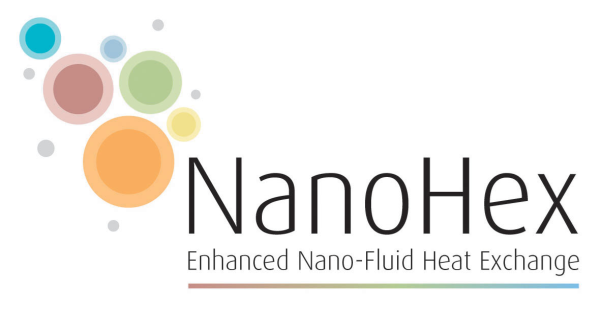Projects
>List of all the projects
| ENHANCED NANO-FLUID HEAT EXCHANGE | |||||||||||
| Acronym | NANOHex | ||||||||||

|
|||||||||||
| Abstract | The project are developing a guide line for a common European approach to the regulatory testing of nanomaterials | ||||||||||
| Large_Description | As current coolant technologies are approaching their technical limits, nanofluids have been reported to have superior thermal properties compared to conventional ones. Published reports of performance at the lab scale have suggested a more than 40 % improvement. This project was able to demonstrate improvements of 10% to 20%. However, the mechanisms are not clear. Scientists initiated the world's largest collaborative project, 'Enhanced nanofluid heat exchange' http://www.nanohex.org/ ((NANOHEX)), for the research and development of nanofluid coolants to methodically investigate their rheological and thermal properties. Researchers focused on formulations for use in data centre cooling and traction power electronic cooling. Thermal tests of a variety of water and water / ethylene glycol based nanofluids enabled the population of a comprehensive database, the largest in existence. The consortium found no significant, if any, repeatable thermal enhancement above that predicted by classical heat transfer theory in convective systems, The database enabled the selection of two nanoparticle (NP) species for further development. Scientists prepared and optimised dispersions of silicon carbide (SiC) and aluminium oxide (Al2O3) in two different carrier fluids, water and water/ethylene glycol (EG). They demonstrated enhanced thermal conductivity between 10% and 20% for the NPs dispersed in water/EG. Although lower than that expected based on published laboratory results, the enhancement is certainly promising. Investigators also found that the addition of NPs has important effects on viscosity, a consideration for future research. The team developed an assessment model to predict thermal performance of novel nanofluids using experimental data on viscosity and conductivity. Two demonstrator units were produced for each application and a life-cycle analysis, a qualitative risk assessment and economic viability study were conducted. Theoretical analysis showed that a nanofluid-cooled data centre has important environmental benefits compared to conventional cooling. In addition, a simulation showed that water cooling could more than double the computing capacity of a data centre and nanofluids increased that by another 10%, opening up important new markets for liquid coolant technology. Although nanofluid coolants do not affect the environmental impact of traction power electronics, they could significantly increase the operating lifetime of inverters. NANOHEX modelling (ref. Analytical modeling for heat transfer in sheared flows of nanofluids - American Physical society, Physical Review E, http://pre.aps.org/abstract/PRE/v86/i1/e016302) and experimental results demonstrated a potential market for nanofluid coolants with particularly promising results in data centre cooling. In addition, the world's largest comprehensive database of nanofluid thermal properties together with simulation tools will be of tremendous importance in the continued development of high-performance and eco-friendly nanofluids for cooling applications. Application road mapping activities undertaken by the consortium suggest strong market opportunities in other alternative markets such as metal cutting and quenching that can exploit both the increase in thermal conductivity and viscosity resulting from the addition of nanoparticles into carrier liquids. |
||||||||||
| location | Europe | ||||||||||
| start_date | 01/09/2009 | ||||||||||
| end_date | 31/03/2013 | ||||||||||
| url_reference | http://www.nanohex.org/ | ||||||||||
| innovation | Translate promising laboratory-based, nanotechnology research results into pilot-lines for the production of nanofluid coolants for industrial heat management applications. Investigate and advance the scientific understanding of the thermal behavior and properties of nanofluid. Develop an analytical model to simulate and predict the heat transfer of formulated nanofluid coolants. Optimise the formulation of nanofluid coolants through the control of the synthesis process and knowledge of the underlying physico-chemical sciences. Design and develop two small scale pilot lines for the manufacture of NanoHex fluid coolants. Deliver energy savings, and safe and reliable exploitation of nanofluid coolants in cooling of electronics, primarily targeting Data Centre and Power Electronics applications. |
||||||||||
| Keywords | LCA, nanofluidi, data cente, motori elettrici di potenza, risk assessment | ||||||||||
| Development_Status | Complete | ||||||||||
| Funding | European | ||||||||||
| Keywords | LCA, nanofluidi, data cente, motori elettrici di potenza, risk assessment | ||||||||||
| Project_Type | R&D | ||||||||||
| Partnerships |
|
||||||||||
| Related research topics |
|






 share
share